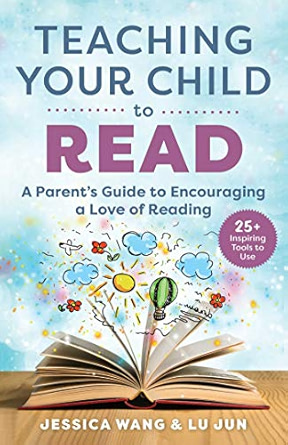Reading in children is a fundamental skill that unlocks pathways to knowledge, ignites imagination, and fosters personal growth. Cultivating a love of reading from an early age represents a priceless investment in a child’s future. Nevertheless, navigating a world brimming with screens and digital diversions necessitates the implementation of effective strategies adapted to each developmental phase. This article delves into tried-and-tested methods to ignite and sustain a passion for reading in children across all age groups.
For Toddlers and Preschoolers (0-5 years): Playful and Sensory Immersion
At this age, reading should be a sensory and playful experience. Babies and young children learn through exploration and interaction.
- Interactive Read-Alouds: Read to your child regularly, using varied intonations, facial expressions, and gestures to bring stories to life. Encourage them to touch the pages, point at pictures, and imitate sounds.
- Textured and Sound Books: Offer books with different textures, flaps to lift, and sound elements to stimulate their senses and make reading more engaging.
- Integrate Reading into Daily Life: Make reading a pleasant routine, for example, before naptime or bedtime. Create a comfortable reading nook with cushions and soft blankets.
- Library Visits: Take your child to the library regularly to explore new books and participate in reading activities for toddlers.
- Be a Role Model: Children imitate their parents. Show them that you enjoy reading by reading yourself regularly.

For Elementary School Children (6-10 years): Exploration and Discovery
At this age, children begin to read more independently. The goal is to nurture their curiosity and introduce them to the diversity of literary genres.
- Offer a Wide Range of Books: Provide adventure novels, fairy tales, comic books, non-fiction books, and magazines appropriate for their age and interests. Let them choose their own books.
- Create Reading Challenges: Organize fun reading challenges with achievable goals and small rewards (preferably non-material) to encourage perseverance.
- Discuss Read Books: Ask open-ended questions about the characters, plot, and themes in the books. Encourage them to express their opinions and emotions.
- Author Visits and Writing Workshops: If possible, arrange meetings with authors or illustrators to spark enthusiasm and show the creative process behind books. Writing workshops can also reinforce their interest in reading.
- Use Technology Wisely: Interactive apps and digital books can be a valuable supplement, provided they do not replace reading physical books.
For Tweens and Teenagers (11 years and older): Autonomy and Relevance
At this stage, it is crucial to respect their choices and show them that reading can be relevant to their interests and concerns.
- Let Choice Prevail: Give them the freedom to choose the genres and authors that interest them, even if they do not match your own tastes.
- Connect Reading to Their Passions: Suggest books related to their hobbies, favorite sports, idols, or subjects they are studying at school.
- Organize Book Clubs: Book clubs provide a space for discussion and sharing about books, which can make reading more social and engaging.
- Explore Different Formats: Offer graphic novels, manga, magazine articles, blogs, and podcasts to showcase the diversity of reading materials.
- Be a Guide and Supporter: Be available to discuss the books they are reading and to help them overcome any difficulties. Never force them to read.
Cross-Cutting Tips for All Ages:
- Create a Reading-Friendly Environment: Make sure books are accessible throughout the house and set aside quiet times for reading.
- Make Reading a Pleasure, Not a Chore: The goal is to cultivate a lifelong love of reading. Avoid pressure and punishments related to reading.
- Celebrate Progress: Encourage and praise children for their efforts and achievements in reading.
By adopting these age-appropriate strategies, parents, educators, and librarians can play a vital role in the development of young readers and offer them a future rich in discoveries and knowledge.












No Comment! Be the first one.